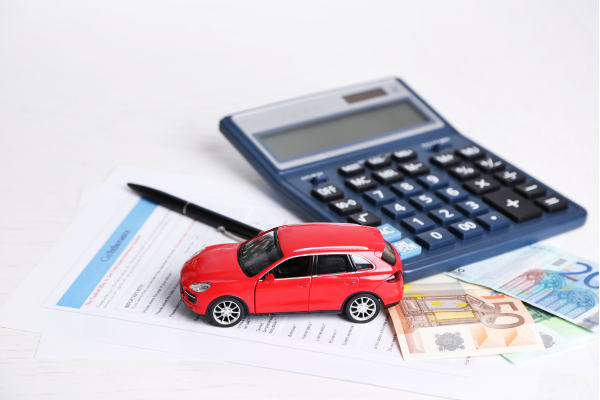Company Cars in Germany: Understanding the Perks and Tax Implications

In Germany, company cars (Dienstwagen) are a popular employee benefit, particularly in industries such as sales, management, and consulting. While the offer of a company car can be attractive, it’s important to understand the perks, tax implications, and responsibilities that come with it. This guide will walk you through what you need to know if you’re offered a company car as part of your employment package.
Outline:
Overview of Company Cars as an Employee Benefit
Tax Implications of Using a Company Car
Maintenance and Usage Responsibilities
Negotiating a Company Car as Part of Your Benefits
Maximizing the Benefits of a Company Car
Overview of Company Cars as an Employee Benefit
What is a Company Car (Dienstwagen)?
A company car, or Dienstwagen, is a vehicle provided by your employer for both business and personal use. It is a common perk in many industries and is often included as part of a compensation package for employees in managerial positions, sales roles, and those who travel frequently for work.
Common Industries and Positions That Offer Company Cars
Company cars are most commonly offered in the following industries:
- Sales and Marketing: Sales representatives and managers who frequently travel to meet clients often receive company cars.
- Management and Executive Roles: Senior managers and executives may receive a company car as part of their benefits package.
- Consulting and Field Services: Consultants and field service engineers who need to travel to different client sites may also be offered company cars.
Differences Between Personal and Business Use
A company car can be used for both business and personal purposes. However, it’s important to understand that using the car for personal reasons, such as commuting or weekend trips, can have tax implications, as this is considered a taxable benefit.
Overview of Company Car Policies
Company car policies vary by employer but typically include:
- Mileage Limits: Some employers may set a limit on the number of kilometers you can drive each year.
- Fuel and Maintenance Costs: These are usually covered by the employer, but it’s important to clarify what is included in your company’s policy.
- Car Model and Specifications: The choice of car may be limited to certain models or brands as specified by the company.
How Company Cars Affect Employee Benefits Packages
Including a company car in your benefits package can have several impacts:
- Reduced Net Salary: Because a company car is a taxable benefit, it can reduce your net salary. However, this is often offset by the value of having a vehicle provided by the employer.
- Potential Trade-Offs: In some cases, employees may have the option to choose between a company car or a higher salary. Understanding the tax implications can help you make an informed decision.
Tax Implications of Using a Company Car
Understanding the 1% Rule for Taxing Company Cars
In Germany, the private use of a company car is taxed under what is known as the “1% rule” (1%-Regelung). This means that 1% of the car’s gross list price (Bruttolistenpreis) is added to your monthly taxable income. This calculation is regardless of the actual distance you drive.
How Personal Use of a Company Car is Taxed
For personal use, including commuting between home and work, additional tax is applied:
- Commuting: For commuting, an additional 0.03% of the car’s list price per kilometer of distance between home and work is added to the taxable income each month.
- Example: If you have a company car with a list price of €40,000 and live 10 km from work, €400 (1% of €40,000) plus €120 (0.03% x 10 km x €40,000) will be added to your monthly taxable income.
Impact on Your Net Salary and Tax Liabilities
The addition of these amounts to your taxable income increases your overall tax liability, which in turn reduces your net salary. However, the cost savings from not having to purchase, maintain, or insure your own vehicle can outweigh this reduction.
Calculating the Taxable Benefit of a Company Car
To calculate the total taxable benefit:
- Monthly Taxable Amount: Calculate 1% of the car’s list price.
- Commuting Addition: Add 0.03% per kilometer for the distance between your home and workplace.
- Total Annual Taxable Income: Multiply the monthly amount by 12 to get the annual taxable benefit.
Special Tax Considerations for Electric and Hybrid Vehicles
Electric and hybrid vehicles receive favorable tax treatment in Germany. For these vehicles, the 1% rule is often reduced to 0.5% or even 0.25% of the list price, making them a more tax-efficient option for company cars.
Maintenance and Usage Responsibilities
Who is Responsible for Maintaining the Company Car?
Typically, the employer covers the maintenance and servicing of the company car. This includes routine maintenance, repairs, and insurance. However, it is your responsibility to ensure the car is maintained according to the manufacturer’s guidelines.
Understanding Mileage Limits and Their Impact on Your Lease
Many company car agreements include mileage limits. If you exceed these limits, you may be responsible for additional costs at the end of the lease. It’s important to monitor your mileage to avoid these charges.
Handling Damage and Insurance Claims
If the car is damaged, you should report it immediately to your employer and follow their procedures for insurance claims. The company’s insurance typically covers damage, but you may be required to pay an excess (Selbstbeteiligung).
End-of-Lease Procedures and Potential Costs
At the end of the lease, the car will be inspected for wear and tear and any excess mileage. If the car is found to have excessive wear or damage, or if you have exceeded the mileage limit, you may be required to pay additional fees.
How to Avoid Penalties at the End of the Lease
- Regular Maintenance: Ensure that the car is serviced regularly to avoid excessive wear.
- Monitor Mileage: Keep track of your mileage to stay within the agreed limits.
- Document Condition: Keep a record of the car’s condition, especially before returning it, to dispute any unfair charges.
Negotiating a Company Car as Part of Your Benefits
How to Discuss Company Car Options During Salary Negotiations
When negotiating your salary, discuss the possibility of a company car as part of your benefits package. Be sure to understand the tax implications and how the value of the car compares to other potential benefits or salary increases.
What to Consider When Choosing a Company Car
Consider your personal needs and preferences, as well as the practicality of the car. Factors like fuel efficiency, maintenance costs, and the car’s resale value should be taken into account.
Additional Perks to Negotiate (e.g., Fuel Cards, Insurance Coverage)
In addition to the car itself, you may be able to negotiate additional perks, such as:
- Fuel Cards: To cover fuel costs for both business and personal use.
- Insurance Coverage: Ensuring comprehensive insurance is included.
Understanding the Trade-Offs Between a Company Car and Higher Salary
If offered the choice between a company car and a higher salary, consider the overall financial impact, including the tax implications of each option. Sometimes, opting for a higher salary might be more beneficial, depending on your personal situation.
Tips for Getting the Best Possible Deal on a Company Car
- Research the Car: Know the market value and operating costs of the car.
- Negotiate Terms: Don’t be afraid to negotiate mileage limits, maintenance packages, or other terms.
- Consider the Long-Term: Think about how the company car will affect your finances over the entire term of your employment.
Maximizing the Benefits of a Company Car
Using the Company Car for Business-Related Travel
Company cars are often used for business travel. Keep detailed records of your business trips to justify the tax treatment of your car’s usage and to potentially claim further deductions.
How to Track and Report Mileage for Tax Purposes
Maintain a mileage log to accurately record business vs. personal use. This is essential for tax reporting and can help you avoid disputes with tax authorities.
Taking Advantage of Tax Deductions for Business Use
If your company car is used for business purposes, you may be eligible for additional tax deductions. Ensure you document all relevant expenses and consult with a tax advisor to maximize your deductions.
Managing Your Company Car to Avoid Additional Costs
- Routine Checks: Regularly check the car for any issues that might lead to costly repairs.
- Preventive Maintenance: Follow the manufacturer’s maintenance schedule to avoid breakdowns and penalties.
How to Upgrade or Change Your Company Car During Your Employment
If your needs change or if you’re eligible for an upgrade, discuss the possibility with your employer. You may be able to switch to a different model or a more fuel-efficient vehicle, particularly if your role evolves over time.
Company cars offer significant benefits but come with responsibilities and tax implications that need careful consideration. Understanding these aspects will help you maximize the advantages of having a company car while minimizing potential downsides.
Disclaimer:
The information provided in this blog post is for general informational purposes only and does not constitute tax, legal, or financial advice. While we strive to ensure the accuracy and timeliness of the information, tax laws are complex and subject to change. We recommend consulting with a certified tax advisor for advice tailored to your individual circumstances. In terms of financial consultation, we collaborate with German Sherpa Financial Solutions, specializing in services for Expats in Germany. Please note that this content does not serve as tax consulting.
Getting a German Driving License: Step-by-Step Checklist
Getting a German Driving License: Step-by-Step Checklist Obtaining a German driving license, especially if you’re…
Buying a Used Car in Germany: What You Need to Know
Buying a Used Car in Germany: What You Need to Know Buying a used car…
Car Insurance in Germany: Understanding Pricing and Options
Car Insurance in Germany: Understanding Pricing and Options Car insurance (Kfz-Versicherung) is mandatory in Germany,…
Public Transport in Germany: Deutschlandticket, Punctuality Issues, and Tips for Getting Around
Public Transport in Germany: Deutschlandticket, Punctuality Issues, and Tips for Getting Around Outline: Overview of…
Renting a Car in Germany: What You Need to Know
Renting a Car in Germany: What You Need to Know Renting a car in Germany…
Buying and Leasing a Car in Germany: A Guide for Expats
Buying and Leasing a Car in Germany: A Guide for Expats Navigating the car market…






